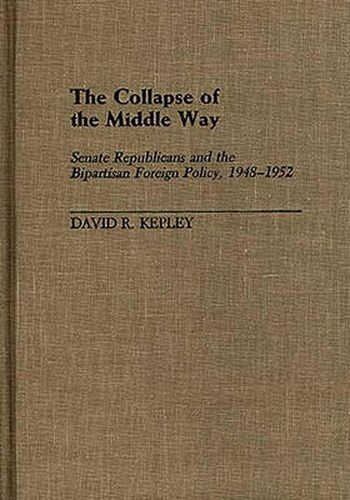Readings Newsletter
Become a Readings Member to make your shopping experience even easier.
Sign in or sign up for free!
You’re not far away from qualifying for FREE standard shipping within Australia
You’ve qualified for FREE standard shipping within Australia
The cart is loading…






The Truman years saw the beginnings of a dramatic shift in the Republican party’s approach to foreign policy and a growing congressional commitment to bipartisanship in foreign affairs. Traditional Republican isolationism, expressed in widespread opposition to overseas political commitments such as NATO and the Marshall Plan, gave way to an internationalist Republican sentiment that called for a militant anti-Communist posture and commitment on a global scale. In this new study, Kepley explains how and why a Cold War consensus developed in the Senate, and he explores the implications of that process for the recurrent conflict between the president and Congress over the conduct of foreign affairs.
$9.00 standard shipping within Australia
FREE standard shipping within Australia for orders over $100.00
Express & International shipping calculated at checkout
The Truman years saw the beginnings of a dramatic shift in the Republican party’s approach to foreign policy and a growing congressional commitment to bipartisanship in foreign affairs. Traditional Republican isolationism, expressed in widespread opposition to overseas political commitments such as NATO and the Marshall Plan, gave way to an internationalist Republican sentiment that called for a militant anti-Communist posture and commitment on a global scale. In this new study, Kepley explains how and why a Cold War consensus developed in the Senate, and he explores the implications of that process for the recurrent conflict between the president and Congress over the conduct of foreign affairs.